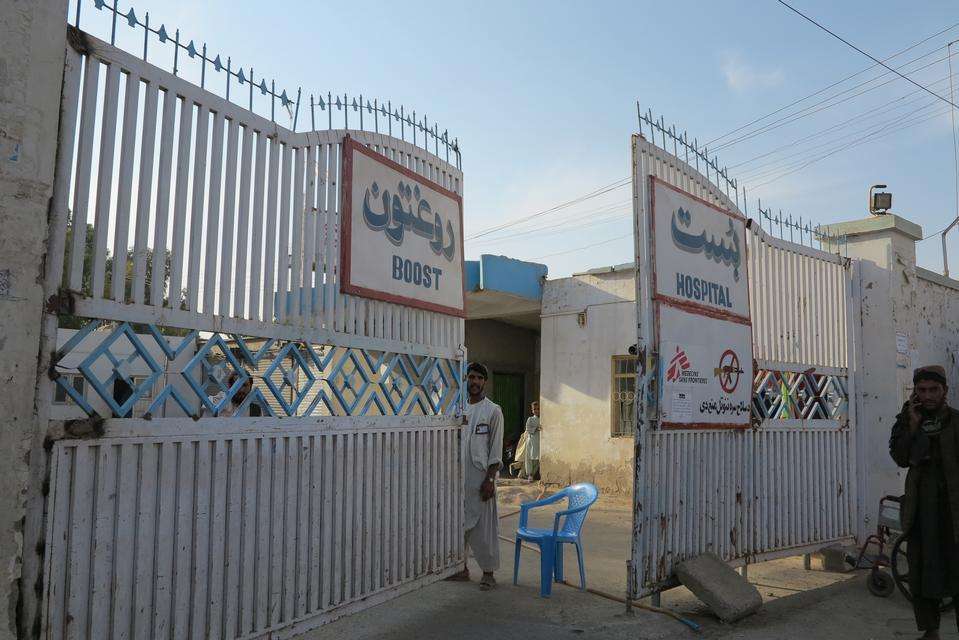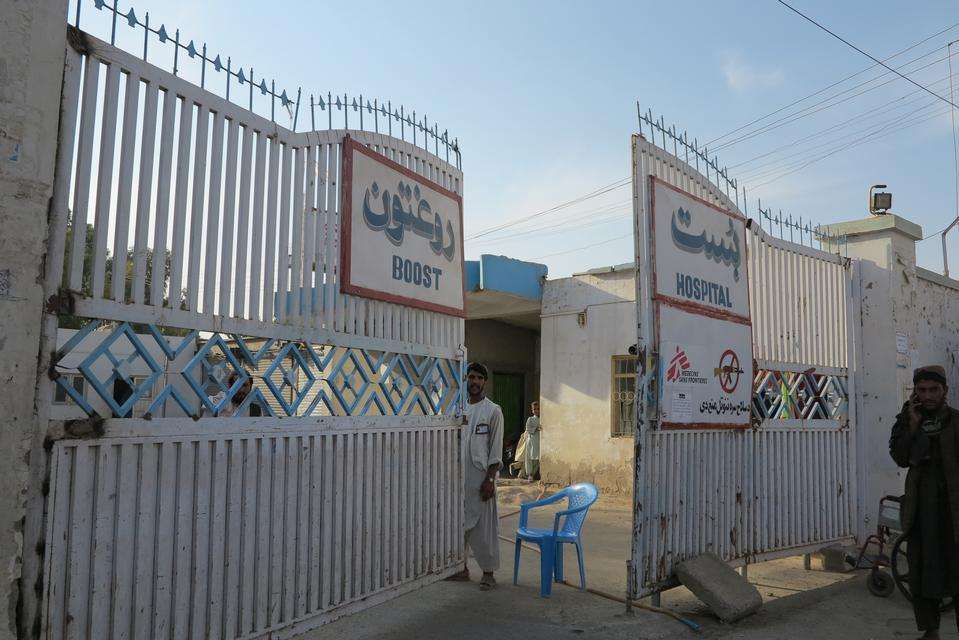Dr. Kimberly Sudheimer is an American pediatrician currently working as a pediatric supervisor at Boost Hospital in Lashkargah, Helmand Province. Boost is one of the only two functioning referral hospitals in southern Afghanistan. Doctors Without Borders/Médecins Sans Frontières (MSF) started supporting the Ministry of Public Health in the hospital in 2009 to help improve the provision of medical care in various departments, including maternity and pediatrics.
It’s the end of my weekend (often Islamic cultures take Thursday and Friday as rest days) and I thought I’d give you an update. The weather is certainly getting colder, most notably at night. It can be comfortable during the day, even stuffy in the hospital, but the skies are quite clear at night and the heat quickly leaves. There is no light pollution, though, and you can see every star twinkle brightly. The rains will be coming soon.
Things in the hospital are going well, though I’m still adjusting. The pediatric and neonatal Intensive Care Units (ICUs) are a difficult place to work, and I’m reminded why I never desired to pursue a career there. Typically I arrive in the Pediatric ICU just after a doctor’s meeting around 8:30 AM and find a swarm of humanity. There are 7 standard-size twin beds with thin, torn foam mattresses and a single sheet on each bed in a 25 foot by 25 foot room. Also, you’ll find a baby-warmer in one corner, a simple sink, a bureau with medication and forms, and an island in the middle of the room that serves as a resuscitation table when a patient is unstable.
This week, I’m fairly certain our census varied between 12 and 18 patients, usually 2 patients and their mother per bed. We often bring in an extra bed to squeeze in just in front of the door. It would be rare for a patient (or the mother) to be bathed at all during their stay and often there will be a child in shock who would need a warm environment, so we try to keep the windows closed. I’ll let you imagine the odor that greets me when I first come to the door. About 80 percent of our critical pediatric patients are severely malnourished and can be precarious to try to pull back from the brink.
Upstairs is the Inpatient Therapeutic Feeding Center (ITFC) and general pediatric wards. The general ward is a large open room that has around 40 twin beds that the 4-5 female nurses will wander amongst, trying to get vital signs and administer medication in an organized manner. The room is painted a dark green and has fluorescent lighting, so it’s not terribly kid-friendly, and the odor situation somehow seems intensified here.
I spend more time examining each patient in the pediatric ICU and neonatal ICU, so when I get to the pediatric wards I usually just do a walk-through, looking at special cases the physician has questions about or just surveying things on my own.
I’ve gotten more accustomed to healthy older siblings following me around and staring at me while mothers grab the edge of my vest or shove their screaming baby in my face, gesturing for me to listen to their chest. They will fervently explain to me their child’s malady with charades, but I still can’t discern any familiar words yet. In contrast the ITFC is starkly quiet. In the first stage of re-feeding the children are too weak to cry or even do their own eating. Most are fed by a tube through the nose and will graduate when they are taking the food by mouth regularly.
Yesterday I discharged a patient I will remember forever. Her name is Fatema, and she is 14 years old. She was admitted in diabetic ketoacidosis, which is a potentially life threatening complication of diabetes type 1 (juvenile). She had been diagnosed with diabetes a few years ago, but lives far away from any health care. Her father tried his best to give her the insulin as prescribed, but they have no electricity and therefore no refrigeration so the insulin quickly became ineffective. I first met him when I found him crying at the base of the stairs, holding his bottle of crystallized insulin. I first met her in the adult ICU because we cannot afford to have a full-size patient taking up a bed where we could put two children. She was safely (and impressively, considering the resources) pulled out of crisis and was then transferred to general pediatric wards. Due to nursing/doctor/documentation confusion it took us about two weeks to finalize her treatment regimen and prove her sugars were safe. For the medically savvy, it was decided to have her managed only on NPH (12h) and no regular insulin so as to avoid any potential complications of medication confusion – completely unheard of in the US/Europe.
Her father couldn’t stay with her during her hospitalization because the general pediatric wards allow only female caregivers, but he faithfully visited her everyday and had a smile that expressed more gratitude than I’ve seen in a long time. When we started growing more confident we had the correct regimen we tried to start educating her and her father about the details of her new system. Quickly it was clear that neither could read or write and neither could recognize numbers. So, while we made an exception and gave her a glucometer, she couldn’t write her results down or comprehend what extreme levels really meant. One translator spent hours with Fatema alone practicing writing numbers and I spent two afternoons with the pair drilling how to give herself the injection, how to check the glucose, how to log it on the chart. My exuberant reactions to correct answers were amusing to them, even though they were completely genuine.
At the time of discharge I walked them through the hospital to ensure she got all of the proper supplies from the pharmacy. Fatema liked to hold my hand when she would see me coming up the stairs, so of course we did on the walk out. I got a big hug from her and was completely dumbfounded when her father reached out to shake my hand (the “no-touching” inter-gender rule here is quite strict). I cannot pretend to be optimistic about her future. Even if they get everything right, they still have neither electricity nor refrigeration for her medication, so I fully expect her to be quite ill again soon. If she makes it two weeks she will return to see me to review her results and see if she needs changes. Please add her and her family to your thoughts.
Enough for now. Thanks always for your support and encouraging words. The obscenity of blessings I have received is more real to me each day here.
Love to all,
Kim
"Yesterday I discharged a patient I will remember forever. Her name is Fatema, and she is 14 years old."
Dr. Kimberly Ritu Sudheimer





